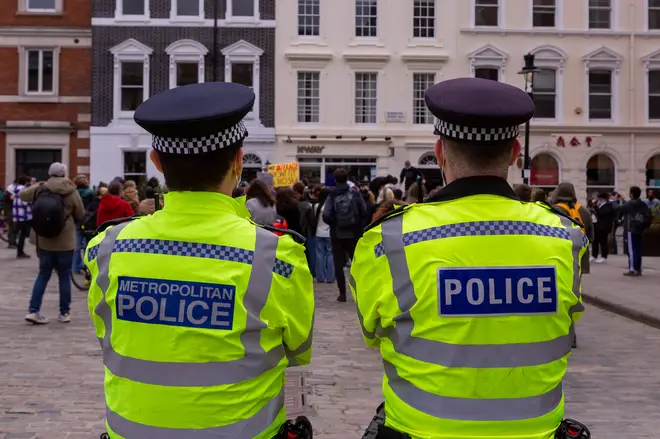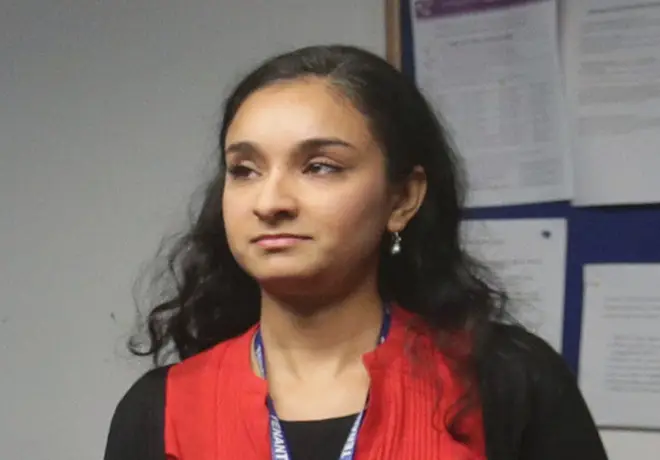
Ali Miraj 12pm - 3pm
19 April 2021, 07:55

Stalkers have been taking advantage of coronavirus lockdown restrictions to prey on their victims, a charity boss has warned.
Perpetrators were using permitted reasons to leave the house, like for exercise, as an excuse to follow victims or loiter outside their homes, chief executive of the Suzy Lamplugh Trust Suky Bhaker said.
It comes as the Metropolitan Police said there had been a more than 300% increase in stalking reports in London during the pandemic amid a change in how such crimes were recorded.
Ms Bhaker told reporters: "We know that stalkers have been using the lockdown restrictions to their advantage, such as using their allowed daily exercise to follow or monitor victims."
There was also believed to be an increase in cyber stalking and in unacceptable "socially distanced behaviour" like sending unwanted letters and gifts.

Perpetrators having "more time on their hands", particularly because of being furloughed or losing a job, may have been a factor in this, she added.
Victims have described feeling like "sitting ducks", Ms Bhaker said, with concerns raised about how face masks could scupper police investigations by causing difficulties with identifying a stalker through CCTV.
The information gathered by the trust also suggested a rise in the "frequency and intensity of online stalking".
Its findings, set out in a report due to be published on Monday to mark the start of National Stalking Awareness Week, looked at data spanning the pandemic. This included the responses to a survey by 111 people and information drawn from the thousands of calls made to the charity's National Stalking Helpline.
Several victims told the trust they had received an "unsatisfactory response" from police, with some saying patterns of behaviour were not recognised or they did not feel their complaint had been taken seriously, Ms Bhaker added.

Caller told she 'must have second jab' before vising aunt in care home
The charity has called for a task force to be set up to examine the low level of prosecutions and has urged the Government to put more funding into specialist victim support.
Detective Inspector Lee Barnard, who leads the Stalking Threat Assessment Centre for the Metropolitan Police, said the crime is "intrusive", often overlooked and can affect victims for "many years" before they realise the situation they are in.
Between April 2018 and March 2019, 1,695 stalking offences were recorded by police in London, up 654 on the previous year, he said.
This rose to 1,908 between April 2019 and March 2020.
In the period covering most of the pandemic - between April 2020 and February 2021 - this increased to 7,909.
Mr Barnard described this as a "staggering statistic" that could seem "quite alarming" but said this was down to better recording practices rather than a "tidal wave" of victims suddenly coming forward.
Changes to the way crimes are recorded by police include marking reports of harassment involving partners or ex-partners as stalking to avoid incidents being "misdiagnosed", which had helped shine a spotlight on domestic abuse-related cases, he said.
The charity urged police forces to make more use of stalking protection orders - which ban perpetrators from approaching their victims and may also force them to seek professional help - that were introduced in January last year.
Mr Barnard said the Met was "leading the way nationally" on this, having obtained 105 since they were brought into force.
But he said officers must enforce them, otherwise they are "just an extensive piece of paper", adding: "When people breach these restrictive orders, we need to act on it because there needs to be a consequence for that breach, otherwise offenders just become empowered and they lose their effectiveness as well."
In a message to victims, he added: "If you think you are being stalked, if that has even entered your thought process, then the likelihood is you are being stalked so please, please, please tell someone about it."
Mr Barnard advised only sending social media posts to friends, checking privacy settings, limiting the amount of information provided online and using different passwords.